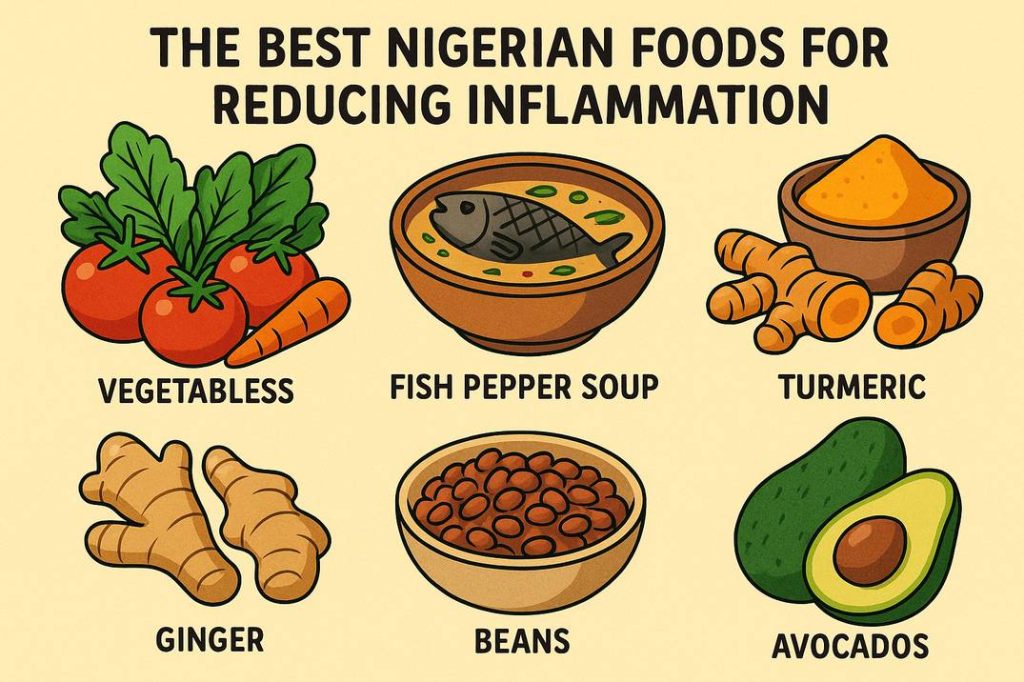You may have heard the word “inflammation” before. But do you know what it means—or why we want to reduce it?
Inflammation is the body’s natural response to injury. It involves dispatching immune cells and releasing various biochemicals to cause repair and healing. The injuries the body aims to address may be obvious and visible—like a gunshot wound—or internal and microscopic, like oxidative stress from the body’s metabolism.
From what we’ve said, it appears inflammation is a good thing. So why would we want to reduce it? Well, when inflammation is uncontrolled or present for a long time, it causes tissue damage alongside healing. Many diseases have accordingly been linked with chronic inflammation, such as:
- Obesity
- Diabetes
- Atherosclerosis
- Certain cancers
- Arthritis
The Link Between Food and Inflammation
Inflammation lingers when the body is exposed to irritants like tobacco smoke or unhealthy foods. Such foods include red meat, refined carbohydrates, ultra-processed snacks, margarine, deep-fried foods, alcohol, and salty diets.
On the flip side, some foods help calm inflammation thanks to their special biochemical properties. Building your diet around these foods can help reduce your risk of inflammation-related diseases. Thankfully, many of these foods are commonly available in Nigeria.

Leafy Vegetables (Ugu, Ewedu, Shoko)
These vegetables are rich in antioxidants and fiber. Antioxidants reduce oxidative stress that builds up from everyday chemical reactions in your cells. Fiber feeds good gut bacteria—which are gentler on your body—and helps bind harmful cholesterol that can irritate blood vessels, raising your risk of stroke and heart disease. Aim to eat 4–5 servings of vegetables daily.
Ginger and Turmeric
Gingerol and curcumin! These are the anti-inflammatory agents in ginger and turmeric. Use them in stews, teas, or drinks like zobo. Turmeric adds a dashing yellow hue and distinct aroma to food, while ginger gives that unforgettable tang. With these spices, you can eat healthy and still enjoy every bite.
Oily Fish
These include catfish, tilapia, mackerel (sardine), and herring (shawa). Oily fish are rich in omega-3 fatty acids, powerful inflammation fighters that support heart and brain health. Eat fish at least twice a week—and please, don’t fry them! Grill or boil instead.
Beans and Other Legumes
Think of groundnuts, Bambara nuts (okpa), soybeans, and your good old beans. They release carbohydrates slowly into the blood, unlike white bread or sugary snacks that spike blood sugar and stir inflammation. They’re also fiber-rich. You should aim for 4–5 servings of legumes each week. Use minimal oil when cooking.
Avocados and Nigerian Pear (Ube)
There’s a type of fat called monounsaturated fat—the healthy kind. Avocados and ube are rich in it. Avocados also offer antioxidants that help reduce inflammation. ¼–½ avocado a day is enough. Enjoy with rice or use as a bread spread.
Tomatoes and Garlic
Don’t underestimate the tomato! That everyday fruit is packed with lycopene, a strong anti-inflammatory compound. Cooking tomatoes actually increases lycopene availability.
Garlic, on the other hand, contains allicin, a compound that reduces inflammatory chemicals. Crush it and let it sit for a few minutes before cooking to release the allicin. Include both ingredients in your daily cooking—whether in stews, sauces, or salads.
Reducing Inflammation One Advantage among Many
These foods that reduce inflammation are also the best for controlling hypertension using the DASH diet. They further provide slow release of carbohydrates and are therefore recommended in diabetes. They reduce risk of heart disease and unhealthy weight while also protecting mental health. The point is that a pattern of eating healthy benefits you in multiple dimensions.
In Conclusion
Chronic inflammation may be silent, but its damage is loud and far-reaching. Thankfully, your everyday Nigerian kitchen holds many delicious weapons against it. So go ahead—spice your soup, load your plate with greens, and enjoy that ube. Your body will thank you.









